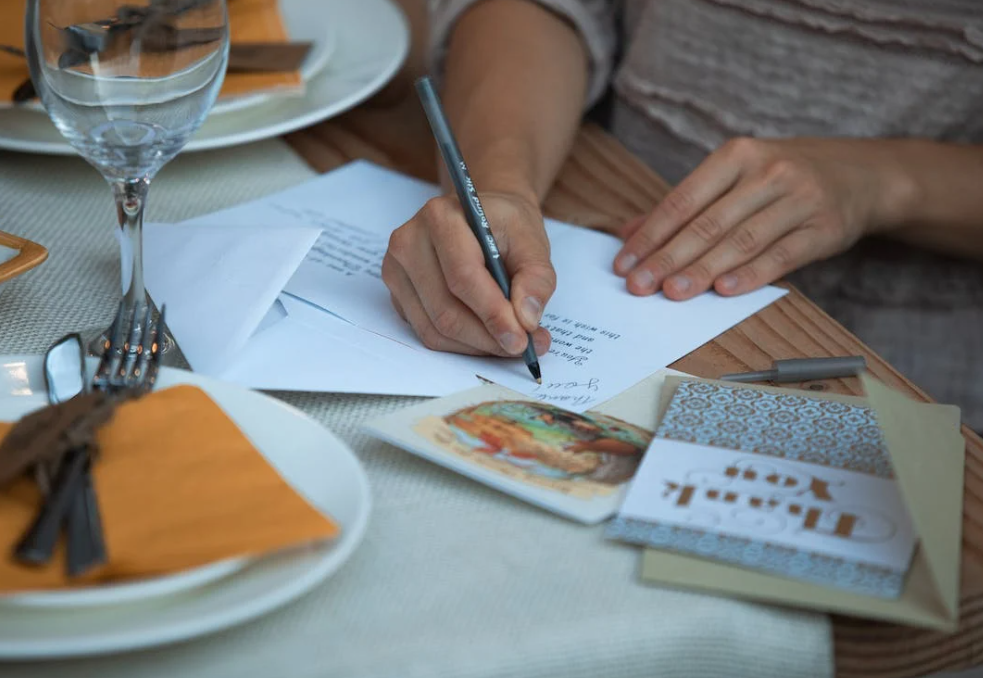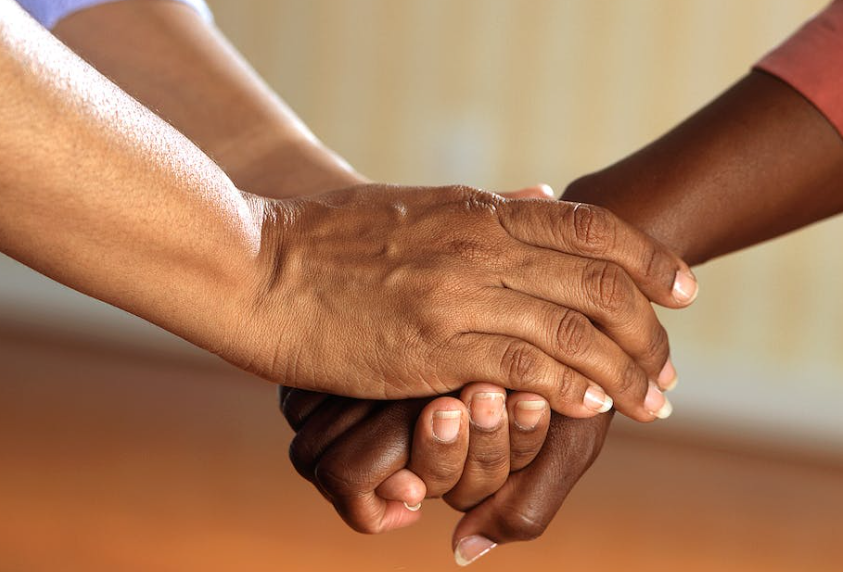Positivity And Gratitude
Learn about the advantages of being positive and grateful toward other feelings of gratitude and positive emotions.

Selfpause Affirmation App
Download the app to get 1,000’s of affirmation meditations and everything you need to write, record and listen to your own.
Studies have found that heightened feelings of gratitude and positive emotions may promote self-improvement. This is because these emotions broaden our thought-action repertoires and allow us to build our personal resources. Additionally, we can experience more connectedness, a sense of humility, and higher levels of self-esteem. These feelings have been linked to a wide range of benefits, including improved physical health and improved interpersonal relationships.
A study conducted at the University of Pennsylvania found a strong correlation between gratitude and happiness. People who were prompted to write about gratitude were happier than those who were prompted to write about daily irritations. The gratitude-induced feelings were sustained even after the participants completed the study. The positive effects lasted up to a month. However, the results of these studies are not conclusive and cannot prove causality. But it is clear that gratitude increases the feeling of well-being.
These feelings may also enhance a person’s ability to engage in social, intellectual, and artistic activities. For example, people who feel contentment and joy often have more options than those who feel fear or anger. As a result, they are more likely to be creative, share their accomplishments, and participate in artistic endeavors.
Gratitude

Recent research has found that expressing gratitude can improve our relationships. It also helps us see our strengths and focus on the positive in our current circumstances. While gratitude may seem like a good thing, it can also have its downsides. One of these is the feeling that gratitude is a debt that we must repay. It can also lead to stress and obligations.
While gratitude is a general disposition, there is no evidence linking it to any specific Big Five personality trait. Rather, gratitude is linked to our emotional state and mood and is likely to change. It is also contagious, meaning that expressing gratitude may influence the behavior of other people. In other words, if you show gratitude to a friend, family member, or stranger, you might feel inspired to reciprocate.
Writing down three things each day that you are thankful for is one way to improve your gratitude practice. While it doesn’t need to be a daily ritual, it will increase your positive outlook. It does not have to be long or difficult. One to three days a week will suffice. Ideally, you should write down five or ten things each day.
Optimism

When you feel depressed, a great way to combat the feeling is to be more optimistic. Optimists are more likely to try harder and deal with adversity better than pessimists do. Optimists are also more likely to grow from difficult experiences. This trait is cultivated through practice.
Studies show that both optimism and gratitude improve physical and mental health. According to one study, people who felt more grateful had lower heart rates and blood pressure. They also had higher feelings of appreciation for others. Moreover, optimism has been linked to increased sleep and a stronger immune system. In addition, it helps individuals deal with stressful situations.
Another study revealed that optimism may contribute to higher levels of physical activity and a reduced risk of cardiac readmission. In addition, patients who felt more optimistic were less likely to be overweight and to have lower blood pressure. These findings suggest that interventions targeting positive psychological constructs may improve cardiovascular health. Similarly, patients with ACS who felt positive about their lives were less likely to suffer cardiac readmissions.
Research has shown that people who feel more optimistic are less likely to experience stress and perform better on tasks. Optimism can also make people more optimistic because it encourages the flow of positive energy. This positive energy is rarely available to everyone. However, the practice of gratitude and optimism can help us feel more optimistic about our lives and the world around us.
Gratitude shaming

Shaming gratitude and positivity is a dangerous mental habit. It can lead to a spiral of negative feelings and can actually cause more harm than good. According to Oakland, California-based therapist Alison Nobrega, “Gratitude is a good thing when it helps us accept the present and accept our future. However, if it is used as a weapon, it can be extremely harmful.”
Shaming gratitude and positivity can lead to a variety of negative feelings, including anger and shame. It also increases your risk of being exploited and subjected to moral violations. As a result, it is important to question your motivation for feeling grateful and find the source of your gratitude.
Many people feel guilty for having negative feelings, so they try to avoid them by telling themselves that they’re not being “positive” enough. This strategy only works if the person is consciously focusing on being grateful for what they have instead of focusing on negative feelings. Shaming gratitude and positivity can be a symptom of spiritual bypassing and may lead to a distorted perception of positivity.
Gratitude as a selfless act
Gratitude is a positive emotion that can benefit us physically and mentally. According to scientific literature, it can help us reduce stress and improve our health. The benefits of gratitude are numerous, and research is becoming increasingly clear about their benefits. Gratitude has several benefits, including an increase in happiness, reduced risk of depression, and lessening the symptoms of anxiety.
One way to practice gratitude is to actively observe what you are grateful for throughout your day. For example, if you’re stuck in traffic, you can be grateful for your car and the courteous drivers around you. This is because they’re preventing a situation that could have become chaotic or dangerous. Also, their actions promote the well-being of others and contribute to community cooperation.
When we give thanks to others for kindness or a kind act, we’re doing it without expecting something in return. Gratitude acts are a powerful way to show others that they’re appreciated and that they are contagious. People who practice gratitude feel happier and less depressed, and they’re more likely to show kindness to others.
Gratitude as a way to deal with adversity

Practicing gratitude is a powerful way to reduce stress and improve our overall health. It can also reduce the risk of mental illness. Gratitude increases positive emotion and improves our mood. It is also contagious, so when you express gratitude to others, they will likely respond in kind.
It is not easy to deal with adversity, but practicing gratitude daily can make a huge difference. One of the first steps is to make a gratitude journal, or simply thank those around you who have helped you in some way. This will improve your relationships and help you recognize the importance of those around you. Also, surround yourself with reminders of gratitude, such as pictures of loved ones or milestones of treatment. This practice will help you cope with the stress and anxiety of cancer treatment and help you feel more thankful.
You may also try gratitude exercises. These activities can help you increase your gratitude by reminding yourself of the hard times in your life. You can even write letters expressing your gratitude to others. This can help you build relationships and improve your mood.
Gratitude as a way to build relationships

Gratitude is an excellent way to improve the quality of your relationships. Not only does it show others that you care about them, it also opens the doors for positive interactions in the future. If you have a friend, for example, expressing gratitude can make them feel more comfortable approaching you, which will help you maintain that friendship even during difficult times.
Practice gratitude daily. Even if you don’t like to write letters, try to express your gratitude verbally to one person a day or once a week. Remember that gratitude should be genuine. It can even start a cycle of generosity. In addition to improving your relationship, being grateful can improve your health. For instance, you may find that you are able to sleep better when you are grateful.
Practicing gratitude is not easy if you’re constantly thinking of negative thoughts. Try starting small if you feel overwhelmed by the idea. Gratitude seems easier when you don’t have to exert a lot of energy.
Our Top FAQ's
Research has shown that practicing gratitude and positivity can have a number of benefits for mental health and overall well-being. These practices can help to reduce stress and negative emotions, increase feelings of happiness and contentment, and improve sleep and physical health. In addition, focusing on the positive aspects of life can help to boost resilience and improve coping skills, allowing individuals to better navigate challenges and setbacks.
Some simple ways to cultivate a positive mindset and gratitude on a daily basis include: keeping a gratitude journal, where you can write down a few things you are thankful for each day; expressing gratitude to others through acts of kindness or verbal appreciation; focusing on the present moment and finding small joys in everyday life; and practicing mindfulness, which can help to bring greater awareness and appreciation for the present moment.
One technique for reframing negative thoughts is to try to identify the underlying emotions or beliefs that are driving the negative thoughts, and then question whether these emotions or beliefs are accurate or helpful. For example, if you are having negative thoughts about a situation, you might ask yourself: “Is it really true that this situation is completely hopeless, or are there any aspects of it that I can appreciate or find positive?” This can help to shift your perspective and allow you to see the situation in a more balanced, realistic way.
Practicing gratitude and positivity can have a positive impact on relationships with others, as it can help to foster greater connection and appreciation for others. When we focus on the positive aspects of our relationships and express gratitude for the people in our lives, we can strengthen bonds and create a more positive, supportive environment. Encouraging others to adopt a positive outlook can also be contagious and have a ripple effect, as positivity tends to beget positivity.
While focusing on positivity and gratitude alone may not necessarily change the circumstances of a difficult situation, it can help to shift our perspective and improve our ability to cope with and navigate challenges. By looking for the silver linings and finding things to be grateful for, even in difficult times, we can cultivate a greater sense of hope and resilience, which can help us to better manage and overcome challenges.
